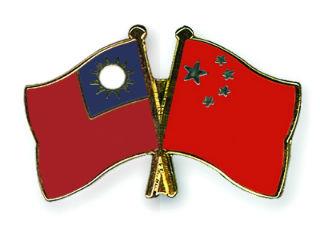With the Taiwanese Presidential elections insight on 16 January, the 12th round of negotiations on the cross-strait trade in goods agreement concluded the end of November in Taipei.

In terms of streamlining product specific customs regulations that aim to prevent free-riding, Taipei and Beijing have worked to reduce the number of items applicable to the rules down to around 200, and will continue their discussions at future gatherings
Delegates from Taiwan and mainland China reached consensus on several key issues.
The talks were led by Yang Jen-ni, director-general of the Bureau of Foreign Trade under the Ministry of Economic Affairs (MOEA), with Wu Ming-ji, director-general of the MOEA Industrial Development Bureau, and their counterpart Sun Tong from mainland China’s Ministry of Commerce.
“Given the ongoing regional integration, the agreement is imperative for Taiwan’s economic growth,” Yang said at a press conference following the conclusion of the talks.
“Other than leveling the playing field for all parties involved, it will promote sustainable growth for locally based businesses.”
According to the MOEA, the two sides agreed to complete customs clearance within 48 hours, with the exception of cases where relevant authorities deem it necessary to conduct further inspections or screenings.
Both sides have also decided to create an electronic data interchange system for goods covered by the Cross-Straits Economic Cooperation Framework Agreement (ECFA).
In terms of streamlining product specific customs regulations that aim to prevent free-riding, Taipei and Beijing have worked to reduce the number of items applicable to the rules down to around 200, and will continue their discussions at future gatherings.
The two sides will also enhance collaboration on food safety measures, such as by creating traceability systems; establishing standards and developing inspection technology for food additives and pesticide residues; and monitoring and preventing the spread of animal and plant diseases.
As to market access, Taipei and Beijing exchanged views on topics spanning industrial collaboration, pricing equilibrium and offering more favorable treatment for Taiwan’s traditional industries and small and medium enterprises.
In particular, Taiwan delegates continued to seek greater access for the local automobile, display panel, machinery and petrochemical industries.
Responding to mainland China’s concerns over Taiwan’s restrictions on agricultural products from the other side of the strait, MOEA officials reiterated the legitimacy of such measures given the huge discrepancies between the two agricultural sectors in terms of size and production costs.
The delegates also made progress on major items relating to technical barriers to trade, trade remedies and transparency regulations, and will continue discussions on other minor items.
According to the MOEA, the next round of negotiations will take place in Taipei in December. Unclear is, what will happen with the trade negotiations after the Presidential and parliamentarian elections in January.
According to different polls these elections are expected to be won by the current opposition party DPP. This party is obviously less enthusiastic about making deals with mainland China than the governing party, KMT.




 By: N. Peter Kramer
By: N. Peter Kramer

